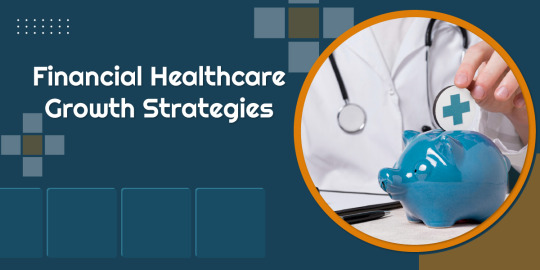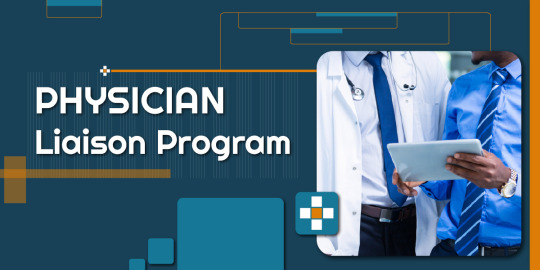Text

Elevating Healthcare Strategic Business Development
Healthcare business planning is essential for success in the dynamic healthcare industry. Whether starting a new practice or expanding an existing one, careful planning is crucial. Begin by defining goals, understanding the target market, and identifying unique value propositions. Develop a detailed business plan that outlines services, marketing strategies, financial projections, and operational workflows. Regularly review and update plans to adapt to changing market conditions and ensure continued growth and success.
#healthcare strategies#healthcare business development#physician liaison programs#physician liaison partnership#physician liaison training#healthcare business planning
0 notes
Text

Extensive Healthcare Data Analysis
Healthcare business development is crucial for staying competitive and meeting the evolving needs of patients. By focusing on strategic partnerships, innovative service offerings, and market expansion, healthcare providers can enhance services and reach more patients. Developing strong relationships with payers and stakeholders, investing in technology, and implementing efficient processes are key components of successful business development in healthcare. With a proactive approach to growth and adaptation, healthcare organizations can thrive in today's dynamic healthcare landscape.
#healthcare strategies#healthcare business development#physician liaison programs#physician liaison partnership#physician liaison training#healthcare business planning
0 notes
Text

A Comprehensive Health Assessment of Growth Readiness
Healthcare strategic growth involves deliberate planning and execution to expand services, improve patient outcomes, and increase market share. It encompasses various initiatives such as mergers and acquisitions, partnerships with other healthcare organizations, and the development of new services or facilities. By implementing strategic growth strategies, healthcare organizations can enhance ability to meet the evolving needs of patients and communities, achieve operational efficiencies, and remain competitive in the healthcare landscape.
#healthcare strategies#healthcare business development#physician liaison programs#physician liaison partnership#physician liaison training#healthcare business planning
0 notes
Text
A Guide to Successful Physician Liaison Partnerships
A physician liaison partnership is a strategic alliance between medical practices and healthcare organizations to improve communication and collaboration. By working together, physicians and liaisons can enhance patient care, streamline processes, and increase referrals. These partnerships often involve regular meetings, communication, and feedback to ensure that the needs of both parties are met. With a strong physician liaison partnership, practices can strengthen their networks, improve patient outcomes, and ultimately, grow their practices.
#healthcare consolidation#healthcare organizations#physician liaison programs#physician liaison partnership
0 notes
Text

Achieving Business Objectives through a Liaison Program
Introducing the Physician Relations Liaison Program—a strategic initiative designed to foster stronger relationships between healthcare providers and physicians. Through this program, dedicated liaisons work to bridge communication gaps, facilitate collaboration, and enhance patient care coordination. By serving as a point of contact for physicians, the program aims to streamline processes, address concerns, and promote mutual understanding. With the Physician Relations Liaison Program, healthcare organizations can strengthen referral networks and improve physician satisfaction.
#healthcare industry#strategic growth#healthcare organizations#healthcare#healthcare provider#healthcare innovation#healthcare consolidation#healthcare system
0 notes
Text

Physician Relationship Management for Patient Care
Physician relationship management involves fostering strong connections between healthcare providers and physicians. It focuses on improving communication, collaboration, and engagement to enhance patient care and outcomes. By establishing positive relationships, healthcare organizations can facilitate referrals, streamline workflows, and promote mutual trust and respect. Effective physician relationship management leads to better coordination of care, increased patient satisfaction, and ultimately, improved healthcare delivery.
#healthcare strategies#healthcare business development#physician liaison programs#physician liaison partnership#physician liaison training#healthcare business planning
0 notes
Text

Strategies for a Successful Physician Liaison Program
A physician liaison program is a strategic initiative implemented by healthcare organizations to enhance communication and collaboration between physicians and the organization. Liaisons act as a bridge, facilitating relationships, providing information about services and resources, and addressing concerns or feedback from physicians. This program aims to strengthen referral networks, improve patient care coordination, and ultimately drive growth and success for the healthcare organization.
0 notes
Text
Strategies for Network Optimization in Healthcare
Strategies for network optimization in healthcare are pivotal for delivering effective and efficient services. Embracing technology, such as advanced health information systems and data analytics, enhances decision-making. Interoperability fosters seamless communication among different healthcare components. Robust care coordination programs improve collaboration, optimizing patient outcomes and resource utilization. Integrating telehealth expands access to care, reducing infrastructure burden. Continuous evaluation and adaptation to evolving trends ensure ongoing optimization, enabling healthcare organizations to provide high-quality, patient-centered services efficiently.
0 notes
Text

Elevate Healthcare Management with the PRM TrackerPLUS
Elevate healthcare management with PRM TrackerPLUS. This comprehensive solution enhances patient relationship management, streamlines workflows, and improves communication across healthcare teams. With features like appointment scheduling, billing management, and real-time analytics, PRM TrackerPLUS empowers healthcare providers to deliver efficient and patient-centric care. The platform's user-friendly interface and customizable tools make it an invaluable asset for healthcare management, ensuring a seamless and organized approach to administrative tasks. Invest in PRM TrackerPLUS for an elevated healthcare management experience that prioritizes both operational efficiency and patient satisfaction.
#healthcare innovation#healthcare industry#healthcare organizations#strategic growth#healthcare consolidation
0 notes
Text

Informed Data Solutions for Healthcare Leaders
Empowering healthcare leaders with informed data solutions is imperative in the evolving landscape of the industry. Advanced analytics, artificial intelligence, and data-driven insights enable informed decision-making. These solutions assist in optimizing patient care, improving operational efficiency, and addressing financial challenges. By harnessing the power of data, healthcare leaders can proactively navigate challenges, identify trends, and implement strategic initiatives that enhance both patient outcomes and organizational success. In an era where information is pivotal, embracing informed data solutions positions healthcare leaders at the forefront of innovation and effective decision-making.
0 notes
Text

Leveraging Physician Liaison Programs for Healthcare Growth
Harnessing the power of physician liaison programs is a strategic approach to healthcare growth. These programs involve designated representatives who build relationships between healthcare providers and referring physicians. By fostering communication, understanding needs, and providing educational resources, liaison programs enhance referral networks and patient outreach. This proactive engagement not only strengthens existing connections but also cultivates new partnerships, driving patient referrals and contributing significantly to the growth and success of healthcare organizations. A well-executed physician liaison program serves as a vital component in the expansion and sustainability of healthcare services.
#healthcare innovation#healthcare industry#healthcare system#strategic growth#healthcare organizations#healthcare#healthcare consolidation
0 notes
Text

Key Trends in Healthcare Strategy Consulting Services
Navigating the evolving landscape of healthcare requires staying attuned to key trends in strategy consulting services. Currently, a shift towards value-based care, digital transformation, and data analytics is evident. Healthcare organizations are increasingly seeking consultants to optimize operations, implement technology solutions, and enhance patient experiences. The integration of artificial intelligence and telehealth services further reflects the industry's commitment to innovation. Successful healthcare strategy consulting embraces these trends, offering insights that enable organizations to adapt, thrive, and deliver high-quality care in an ever-changing environment.
#strategic growth#healthcare innovation#healthcare#healthcare organizations#healthcare system#healthcare industry#healthcare provider#healthcare consolidation
0 notes
Text

Financial Healthcare Growth Strategies
Implementing effective financial healthcare growth strategies is essential for sustained success. Healthcare organizations can focus on diversifying revenue streams, optimizing operational efficiency, and leveraging technology for improved patient care. Strategic partnerships, mergers, and acquisitions also play a crucial role in expanding market reach and enhancing service offerings. By aligning financial initiatives with patient-centric care and industry trends, healthcare providers can navigate challenges, capitalize on opportunities, and ensure long-term financial viability in a dynamic healthcare landscape.
#healthcare innovation#healthcare provider#healthcare industry#strategic growth#alternative#healthcare organizations#healthcare system#healthcare consolidation
0 notes
Text

Data-Driven Leadership Solutions for Healthcare Decision Makers
Data-driven leadership solutions are invaluable for healthcare decision-makers. In an increasingly complex and dynamic healthcare landscape, access to comprehensive data and analytics is essential. These tools empower leaders to make informed decisions, optimize resource allocation, and improve patient outcomes. By harnessing the power of data, healthcare executives can identify trends, allocate resources efficiently, and enhance overall service quality. In an era where evidence-based decision-making is paramount, data-driven leadership solutions are pivotal for the success of healthcare organizations and their ability to provide high-quality care.
#healthcare industry#healthcare innovation#strategic growth#healthcare provider#healthcare organizations#healthcare system#healthcare#healthcare consolidation
0 notes
Text

Unlocking Insights with the Healthcare PRM TrackerPLUS Intelligence Platform
Unlocking valuable insights in healthcare is made more accessible with the Healthcare PRM TrackerPLUS Intelligence Platform. This powerful tool allows healthcare organizations to gather and analyze data related to physician relationships, referral patterns, and patient outcomes. By harnessing this intelligence, providers can make informed decisions, enhance patient care, and optimize their network of physicians. The TrackerPLUS platform facilitates smarter, data-driven strategies that improve healthcare delivery and patient experiences, making it a valuable asset in the ever-evolving healthcare landscape.
#healthcare industry#strategic growth#healthcare organizations#healthcare consolidation#healthcare provider#healthcare innovation#healthcare system
0 notes
Text

Enhancing Patient Care through Physician Relationship Management
Enhancing patient care is a top priority in healthcare, and physician relationship management (PRM) plays a crucial role in achieving this goal. PRM involves building and nurturing positive relationships between physicians and their healthcare organizations. By fostering effective communication and collaboration, healthcare providers can ensure that patients receive comprehensive, coordinated care. PRM software and strategies help streamline these relationships, leading to better patient outcomes, improved care quality, and increased satisfaction for both healthcare professionals and the individuals they serve. Ultimately, PRM is a vital component in elevating the overall healthcare experience.
#strategic growth#healthcare organizations#healthcare provider#healthcare consolidation#healthcare innovation#healthcare industry#healthcare system
0 notes
Text

Connecting Physicians and Healthcare Organizations
Connecting physicians with healthcare organizations is crucial for the efficient and effective delivery of healthcare services. This collaboration ensures that medical professionals are placed in roles where their expertise is most needed. Physician recruitment agencies, job boards, and networking platforms play a vital role in this process, facilitating the connection between healthcare providers and healthcare organizations. By streamlining this connection, these platforms help bridge the gap, allowing physicians to find the right job opportunities and organizations to secure the medical talent they require, ultimately benefiting both patients and healthcare professionals.
#healthcare industry#healthcare innovation#healthcare provider#healthcare organizations#strategic growth#healthcare consolidation#healthcare system#healthcare
0 notes